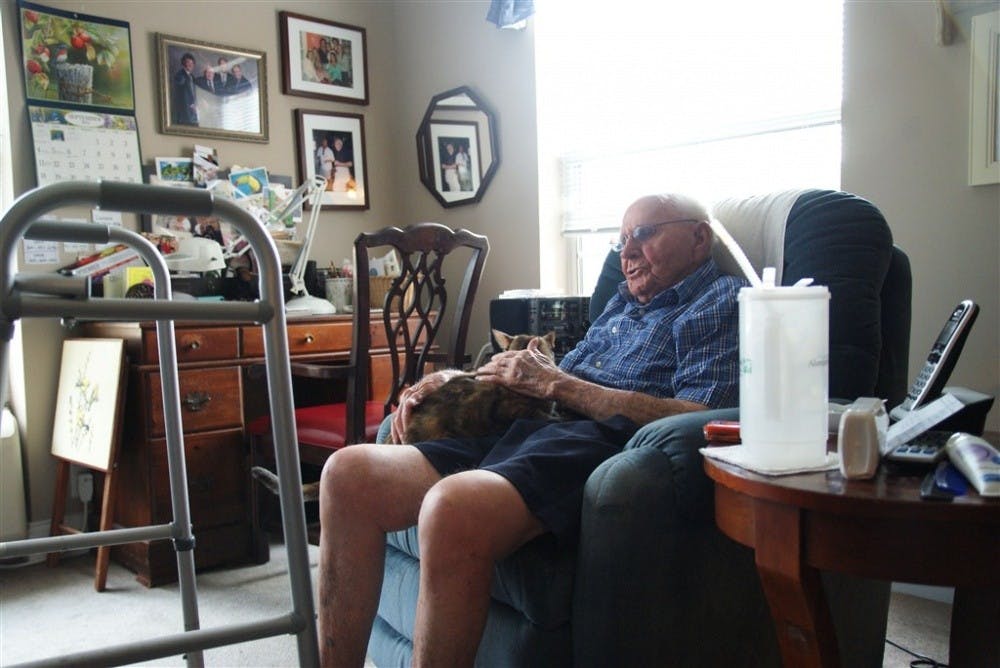The Blakey Hall Retirement Community is a popular place for Elon students to volunteer with the elderly in the area. A lesser known way of getting involved is through The Cottage at Blakey Hall, a seperate unit that houses 16 residents with memory impairments such as dementia and Alzheimer's disease.
Ellen Shatterly, a staff member at The Cottage, knows that some might be concerned about The Cottage residents' mental capacity.
"Don't be afraid of them," she said.
Shatterly said it's important for Elon students to work with the elderly.
"The younger population doesn't always have the advantage of having a grandparent," she said. "Older generations have a world of knowledge and through intergenerational activities, both populations can merge and learn from each other."
In addition to learning from the residents, Elon students can also expect to be rewarded with new friendships.
"There's a grin all over their faces when they see Elon students coming in," Shatterly said. "They just start laughing and want to give you a hug. They know something special is going to happen. They're appreciative of the individual attention and may not remember your name, but will know who you are."
It is especially important to spend time with the residents of The Cottage, Shatterly said.
"It's great if you can keep them moving by going on walks and doing other physical activities," she said. "This helps the blood circulate to the brain."
While residents of Blakey Hall are able to go out or have family to assist them, Shatterly said volunteers are desperately needed at The Cottage because the residents are unable to go out on their own and many don't have family nearby to help.
She also said volunteering could especially help people with Alzheimer's disease because they are able to mirror the actions of others. Activities such as coloring and completing puzzles can actually be more than just fun for the residents.
Senior and Lumen Scholar, Ruth Robbins, is investigating the effect of cognitive intervention on memory loss in elderly members of the community.
Her research includes providing cognitive training to participants in the form of challenging brain games for one hour each week during a 10-week period.
"The games challenge the participant's frontal lobe, which challenges their attention and memory skills, and they are also enjoyable and interactive," Robbins said.
Because of the interactive nature of the games, social relationships are likely to form, which is an added benefit because it provides an incentive for continued participation. It has been shown that social interaction improves learning and contributes to preserving brain function.
Past volunteers have participated in a variety of ways including watching movies with popcorn, ice cream parties, baking and decorating cookies. Students with special talents like tap dancing and piano playing have also performed for the residents.


